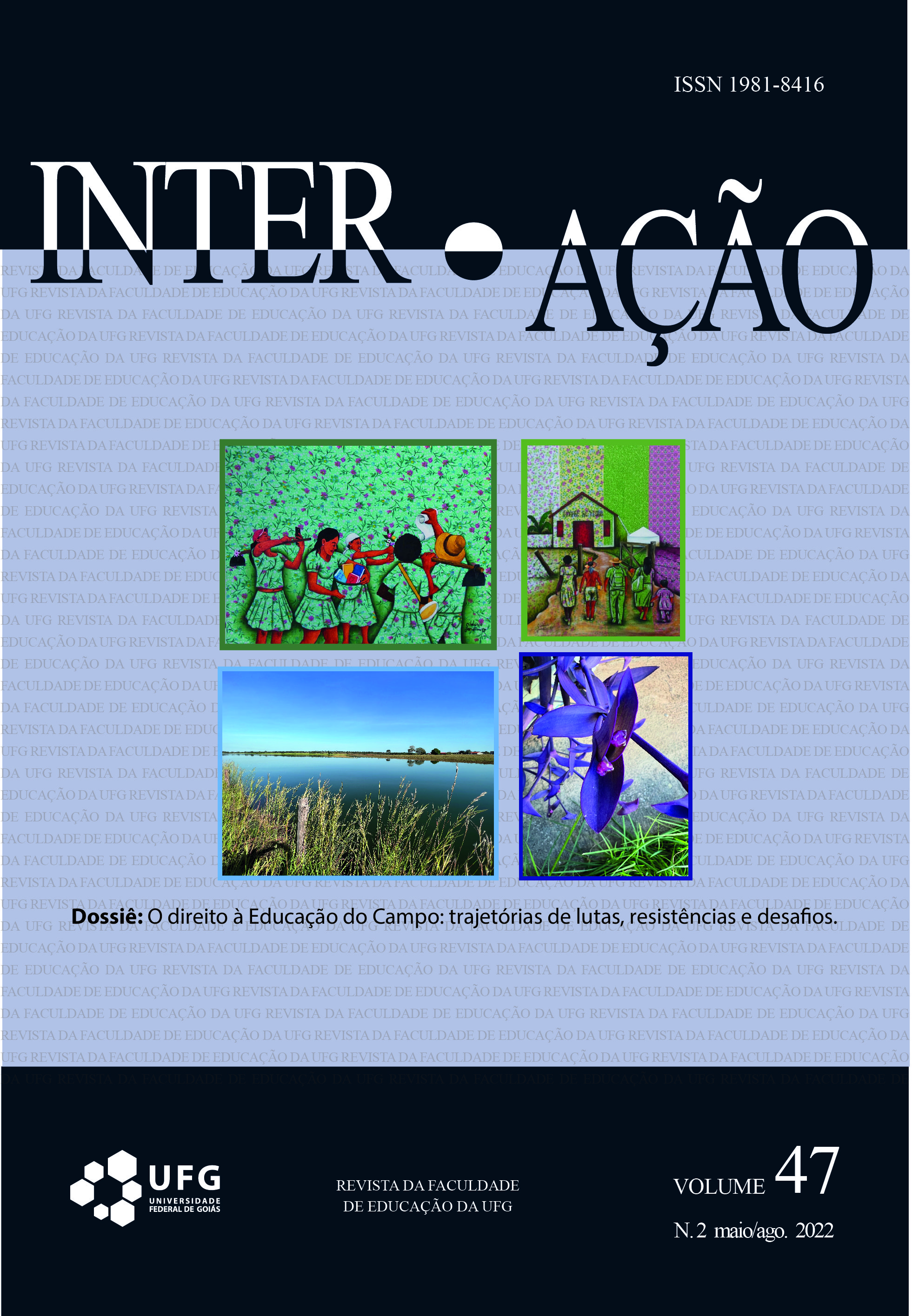O PROCAMPO COMO POLÍTICA DE GARANTIA AO DIREITO À UNIVERSIDADE PARA OS POVOS DOS CAMPOS, ÁGUAS E FLORESTAS
DOI :
https://doi.org/10.5216/ia.v47i2.72159Résumé
O presente trabalho é um recorte de uma tese de doutorado, defendida em 2020, que analisou a implementação do PROCAMPO. Assim, busca-se analisar a trajetória histórica da universidade e da implementação da política do PROCAMPO para compreender como esta trabalhou no acesso à universidade das populações que compõem o campo brasileiro. A análise de dados foi organizada a partir dos microdados do Censo da Educação Superior de 2009 a 2018, de entrevistas e de análise documental de atas e documentos produzidos pelos cursos de Licenciatura em Educação do Campo. O que foi possível compreender desse movimento é que o PROCAMPO foi uma política que subverteu diversos paradigmas na universidade pública brasileira.
PALAVRAS-CHAVE: Direito à Universidade. Educação do Campo. PROCAMPO.
Téléchargements
Téléchargements
Publié-e
Comment citer
Numéro
Rubrique
Licence
© Ehrick Eduardo Martins Melzer 2022

Cette œuvre est sous licence Creative Commons Attribution - Pas d'Utilisation Commerciale 4.0 International.
A Inter-Ação utiliza como base para transferência de direitos a licença Creative Commons Attribution 4.0 para periódicos de acesso aberto (Open Archives Iniciative - OAI). Por acesso aberto entende-se a disponibilização gratuita na Internet, para que os usuários possam ler, baixar, copiar, distribuir, imprimir, pesquisar ou referenciar o texto integral dos documentos, processá-los para indexação, utilizá-los como dados de entrada de programas para softwares, ou usá-los para qualquer outro propósito legal, sem barreira financeira, legal ou técnica.
Autores que publicam neste periódico concordam com os seguintes termos:
1) Autores mantém os direitos autorais e concedem à revista o direito de primeira publicação, com o trabalho simultaneamente licenciado sob a Licença Creative Commons Attribution que permite o compartilhamento do trabalho com reconhecimento da autoria e publicação inicial nesta revista.
2) Autores têm autorização para assumir contratos adicionais separadamente, para distribuição não-exclusiva da versão do trabalho publicada nesta revista (ex.: publicar em repositório institucional ou como capítulo de livro), com reconhecimento de autoria e publicação inicial nesta revista.
3) Autores têm permissão e são estimulados a publicar e distribuir seu trabalho online (ex.: em repositórios institucionais ou na sua página pessoal) a qualquer ponto antes ou durante o processo editorial, já que isso pode gerar alterações produtivas, bem como aumentar o impacto e a citação do trabalho publicado.















